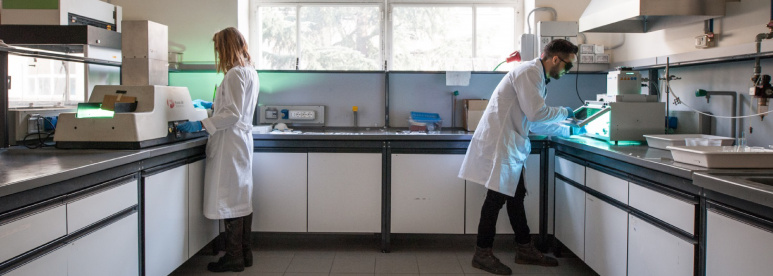Levels, organization and governance of research

ANALYSIS
Four different “places” (loci) where research is conducted can be identified. They include not only well-established institutional entities, but also the workplaces where our researchers operate every day:
- Individual researcher, who generally consider individual work as a significant opportunity for research flexibility and freedom
- Research groups, which are considered by researchers to be the most effective locus of research, the main environment of a researcher’s daily activity and dialogue where promoting synergies between competencies; they facilitate access to financial resources and assets and allow achieving a "critical mass"
- Departments, perceived as the "home” where each researcher develops his/her own career and the place where synergies between the three university missions can be implemented. They have sound planning capability and ensure effective visibility from the outside
- Interdepartmental structures, perceived as a place which favours the opportunities mentioned above (i.e., sharing of assets, research programmes, and cultural fields). They stimulate innovation and help to reach the technological frontier, but they require knowing how to work with a different approach, with adequate coordination and integration tools
DECISIONS
- Departments must become loci of strategic elaboration by means of adopting guidelines and plans which are consistent with this Strategic Plan, by continue progressing up to the point where they can play the role they have been assigned in education and research by the law and the Statute of Politecnico di Torino.
- Interdepartmental Centres need to become open, flexible and able to evolve and must provide uniformity in policies granting use and access to infrastructures
- Research Groups will be identified and valorised leading to a "vertical" contribution within the Departments and a "transversal" contribution to the activity of the Interdepartmental Centres
- A continuous focus will be put on individual researchers’ activities, by promoting basic research and guaranteeing adequate career perspectives.
